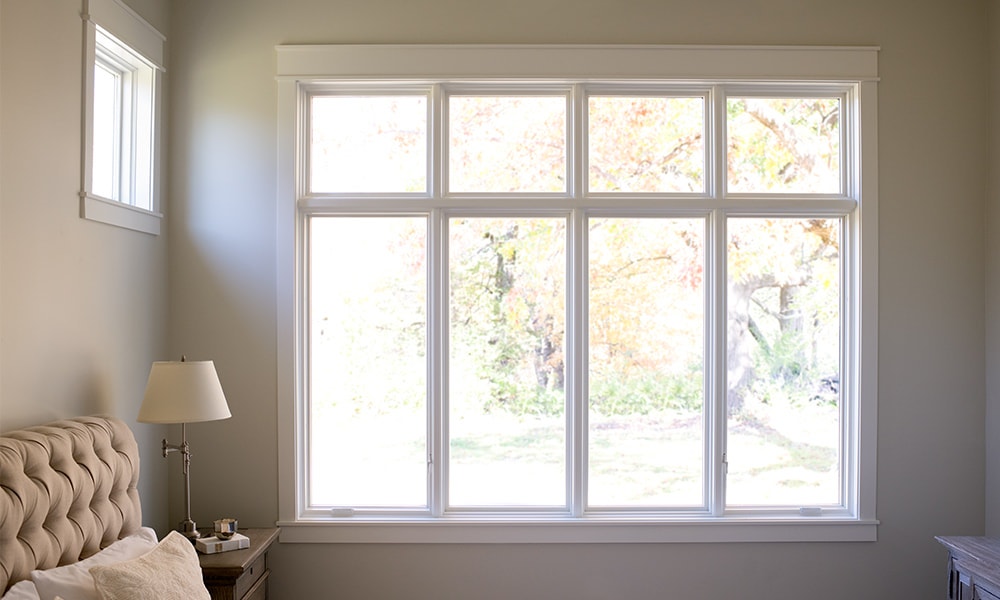Selecting the right windows for your home is a significant decision that goes beyond aesthetics. They play a crucial role in enhancing your living space’s comfort, energy efficiency, and overall appeal. With various options available, including triple glazed windows, making an informed choice is essential. So, explore below the key factors to consider when choosing windows for your home, ensuring that your decision aligns with both practicality and style.
Table of Contents
Window Style and Design
Windows come in various styles and designs, each offering a unique look and functionality. As such, consider the architectural style of your home and your personal preferences when selecting the window style. Common options include:
Double-Hung: These classics feature two sashes that slide vertically, allowing for easy ventilation control.
Casement: Hinged on one side, casement windows swing open like a door. They provide excellent ventilation and a modern, streamlined appearance.
Sliding: They have one or more movable sashes that glide horizontally. They are ideal for spaces with limited vertical clearance.
Bay or Bow: They project outward, creating a charming alcove. They add depth to a room and provide a panoramic view.
Energy Efficiency
This is a crucial consideration when choosing windows for your home. Well-insulated options, such as triple glazed windows, can significantly impact your energy bills and overall comfort. Hence, look for options with high energy efficiency ratings, often denoted by the U-factor and Solar Heat Gain Coefficient (SHGC). A lower U-factor indicates better insulation, while a lower SHGC signifies reduced heat gain.
Frame Material
Window frames are available in various materials, each with its advantages and aesthetics. Common frame materials include:
Wood: Wood frames offer natural beauty and excellent insulation. However, they might require regular maintenance to prevent decay or warping.
Vinyl: Vinyl frames are low-maintenance and provide good insulation. They are also resistant to moisture, making them suitable for humid climates.
Aluminium: Aluminium frames are durable and lightweight but may not be as energy-efficient as other materials unless they include a thermal break.
Fiberglass: Fiberglass frames combine strength, low maintenance, and energy efficiency. They are a versatile choice suitable for various climates.
Glazing Options
The type of glazing used in the window can significantly impact their performance. Hence, consider options like:
Single Glazing: Single glazing consists of a single pane of glass. While it is the most basic option, it provides minimal insulation and is less energy-efficient.
Double Glazing: Double glazed ones feature two panes of glass partitioned by a gap filled with insulating gas. They offer improved insulation and energy efficiency compared to single glazing.
Triple Glazing: Triple glazed windows take it a step further with three panes of glass and two insulating spaces. They provide the highest insulation and energy efficiency level, making them ideal for extreme climates.
Window Orientation
The orientation of your window can impact natural light, ventilation, and energy efficiency. Hence, consider the following when determining window placement:
North-Facing: North-facing windows receive consistent, indirect light throughout the day, making them ideal for rooms where you want to maximise natural light without excessive heat gain.
South-Facing: South-facing windows provide ample sunlight, which can help with passive solar heating during the winter. However, you may need shading in the summer to prevent overheating.
East-Facing: East-facing windows receive morning sunlight, which can be invigorating. They are great for bedrooms and kitchens.
West-Facing: West-facing windows get the strongest afternoon sunlight, and this can lead to overheating in the summer. As such, consider shading options like awnings or blinds.
Budget Considerations
Your budget really matters in your window selection process. While high-quality, energy-efficient windows may come with a higher initial cost, they can help you with long-term savings on energy bills and maintenance expenses. Hence, it’s essential to strike a balance between your budget and your long-term goals when choosing windows for your home.
Conclusion
Choosing the right windows for your home involves evaluating multiple factors, from style and design to energy efficiency and budget considerations. For instance, triple glazed windows are an excellent option for those seeking superior insulation and comfort. As such, by carefully considering these factors, you can make an informed decision that enhances your home’s aesthetics and functionality while keeping you comfortable and energy-efficient year-round. Ultimately, the options you choose should reflect your unique preferences and align with your home’s specific needs, making your living space a place of comfort and beauty.

